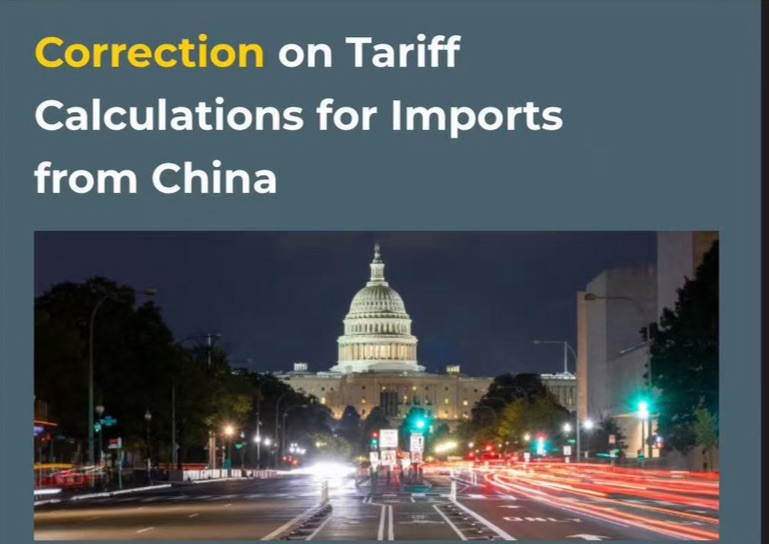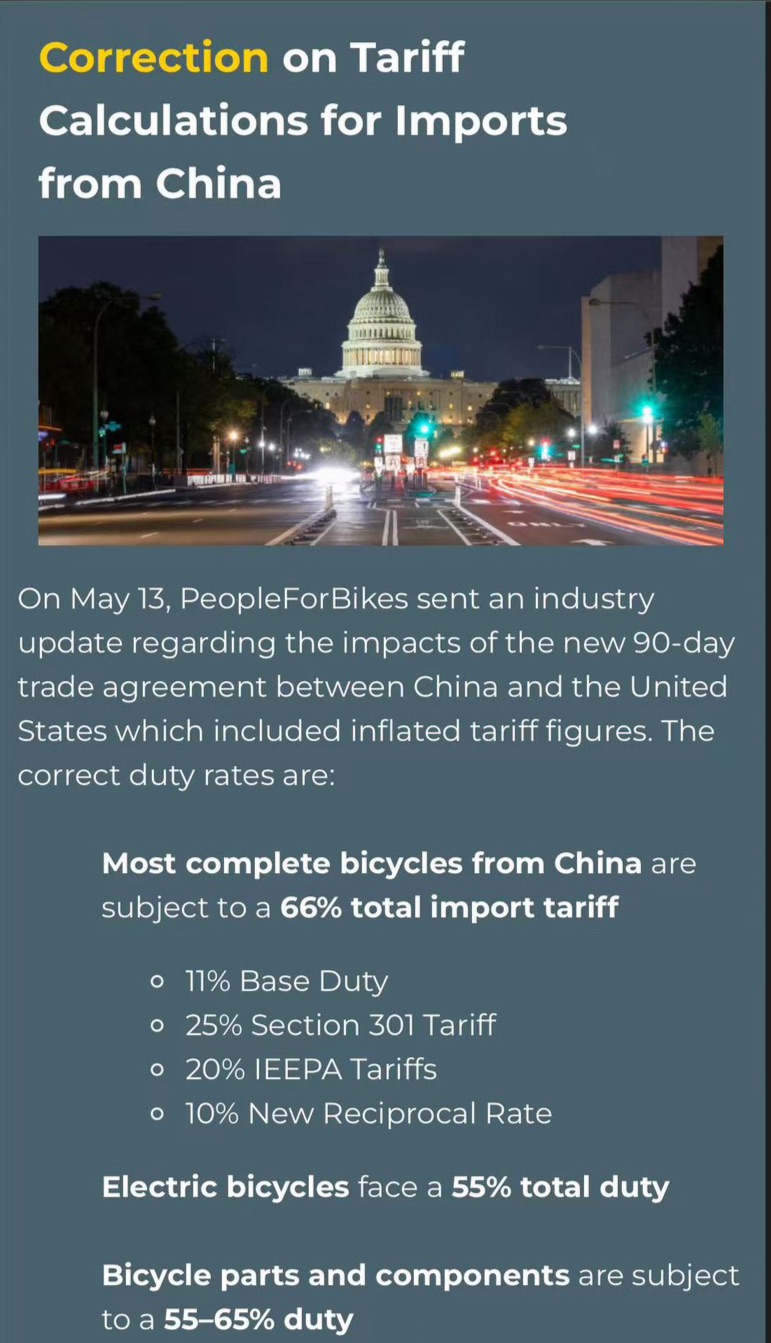Text: Wheel Giant
Following breakthrough trade talks between the U.S. and China in Switzerland earlier this May, the two nations announced a major agreement this week to reduce recently imposed tariffs by 115% for a 90-day period. Under the agreement, U.S. tariffs on Chinese imports drop to 30%, while China's tariffs on U.S. goods fall to 10% — a significantly deeper cut than markets had anticipated.
U.S. Treasury Secretary Bessent emphasized that neither side wishes for economic decoupling. Meanwhile, Chinese Vice Premier He Lifeng confirmed that both parties have agreed to establish a U.S.-China economic and trade consultation mechanism to support ongoing cooperation.
According to the latest update from the National Bicycle Dealers Association (NBDA), the reduced tariff rates will take effect starting May 14. Despite the sharp decrease from the original 145%, the overall tax burden on bicycles imported from China remains substantial. The breakdown of tariffs is as follows:
1. Road Bikes: 5.5% MFN (Most-Favored Nation) + 25% (Section 301 Tariff) + 30% (New Reciprocal Tariff) = 60.5%
2. Other Bicycles: 11% MFN + 25% + 30% = 66%
3. E-bikes: 0% MFN + 25% + 30% = 55%
The Section 301 tariffs are punitive duties imposed by the U.S. for national security reasons, particularly aimed at curbing illegal fentanyl trafficking from China. These tariffs remain subject to further adjustment within the next 90 days.
Taiwan’s Position and Cautious Optimism
From Taiwan’s perspective, the situation is slightly more favorable — for now. According to Robert Wu, Chairman of the Taiwan Bicycle Association (TBA), Taiwan-made bikes exported to the U.S. currently face an 11% MFN tariff plus a 10% reciprocal tariff, while e-bikes are subject only to the 10% reciprocal rate.
Although Taiwan retains a slight edge over Chinese exports under the new arrangement, Wu cautions that the outlook after the 90-day window is uncertain. He urges Taiwanese manufacturers to closely monitor evolving U.S. tariff policies, especially those involving Vietnam and Cambodia, as these could significantly reshape the global bicycle supply chain.
An Uncertain Road Ahead
The temporary tariff relief provides a welcome breather for the global bicycle industry, which has been grappling with rising costs, supply chain disruptions, and shifting consumer demand. However, the long-term picture remains uncertain. Companies will need to stay agile, revise strategies, and prepare for ongoing changes in the global trade landscape to maintain their competitiveness.









